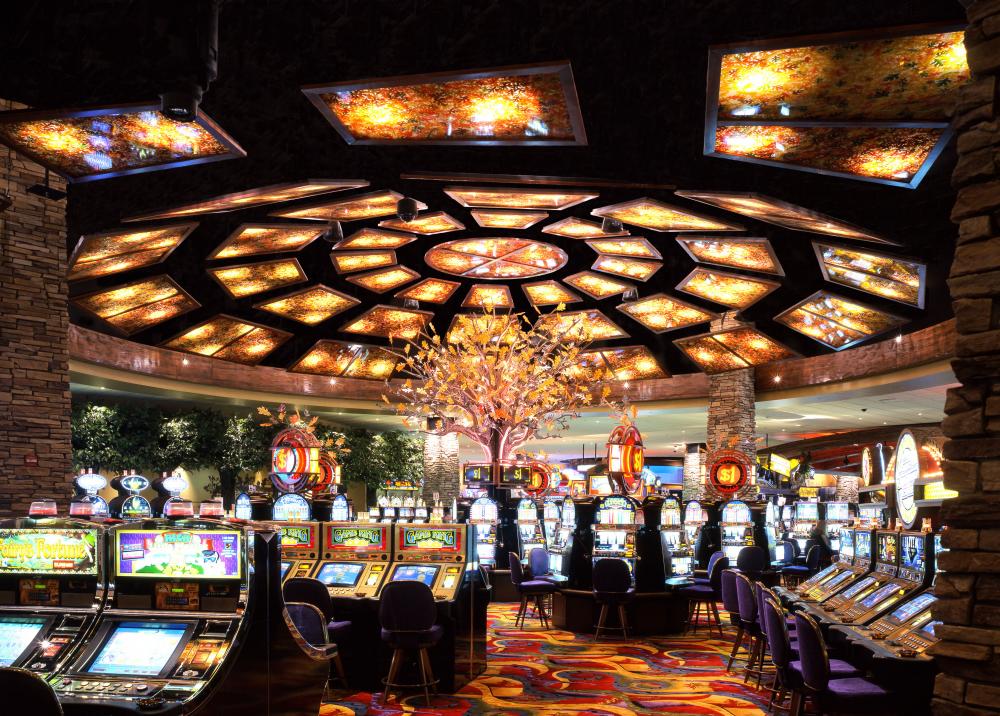
Casino gaming has long been a subject of interest and debate, attracting millions of players globally. With a mix of luck, skill, and the excitement of risk, casino games offer an exhilarating escape from everyday life. However, as entertainment becomes ever more accessible, it invites a deeper examination of the ethical implications surrounding these games.
At the heart of the debate lies the question of whether casinos promote responsible gaming or take advantage of at-risk individuals. Ga179 The appeal of potential winnings versus the truth of losses can create a challenging dynamic, and understanding this balance is crucial for both players and operators. As we delve into the morals of casino gaming, we will explore the responsibilities of casinos, the effects on society, and the steps that can be taken to foster a better gaming environment.
The Impact of Casino Gaming on Society
Casino gaming has a considerable influence on the community, affecting not only the financial landscape but also social behaviors and community structures. The funds generated from casinos can lead to job creation and boost local economies, as they provide various employment opportunities in different sectors including food and beverage, entertainment, and retail. However, while the economic advantages can be significant, communities often grapple with the possible negative impacts that arise from increased gambling activity.
Additionally, the presence of casinos can lead to an rise in gambling addiction, presenting serious challenges for individuals and families. The excitement of casino games can quickly evolve into a habitual habit, affecting personal relationships and leading to monetary issues. Many individuals may struggle with the loss of control over their gambling habits, resulting in a need for assistance programs and help to address this growing issue. The social cost of gambling addiction can ripple through kinships and neighborhoods, creating an urgent need for responsible gaming initiatives.
In addition to the economic and social ramifications, casino gaming often reflects cultural attitudes towards uncertainty and leisure. It can encourage a sense of excitement and leisure, attracting visitors and boosting local travel. However, this allure may also conceal the wider implications of gambling as a form of entertainment, provoking ethical questions about its advertisement and availability. As communities weigh the benefits and disadvantages of casino gaming, the need for responsible practices and oversight becomes increasingly critical in ensuring that the beneficial elements are maximized while minimizing the potential harms.
Moral Concerns in Gambling Practices
The ethics of casino gaming often revolve around the potential for dependency and its effects on people and households. Betting can lead to significant financial distress, impacting not only the gamblers but also their families. As people become entrapped in the appeal of winning, many lose sight of their financial limits, which can result in devastating results such as insolvency. This poses ethical questions about the duty of gambling establishments in promoting responsible gambling habits and providing support for those who may be dealing with betting addiction.
Another major concern is the advertising of betting to vulnerable populations. Casinos often target low-income people or communities with the offer of quick gains, which can continue patterns of poverty and hopelessness. In this situation, the ethics of marketing strategies used by gambling establishments come under examination, as they may take advantage of the desperation of individuals seeking an escape from economic troubles. This manipulation raises moral questions about the honesty of the gambling industry and its obligation to protect its most at-risk customers.
Additionally, the effect of gambling operations on the community as a entirety cannot be overlooked. While some argue that gambling establishments create employment and stimulate local economies, others point to the community costs associated with dysfunctional betting, increased crime rates, and a strain on public services. Balancing financial advantages with the risk for social harm presents a challenging ethical dilemma for lawmakers and gambling operators alike. The challenge lies in finding a responsible approach that prioritizes the well-being of individuals and communities while still permitting for the pleasure of casino gaming.
Regulatory Structure and Duties
The legal system pertaining to casino games is created to ensure equity, integrity, and player safety. Various government bodies and gaming commissions establish and implement regulations that dictate how gambling activities work, the guidelines for product development, and the processes for managing rewards. These regulations vary by jurisdiction but typically involve permit requirements for providers and rigorous measures to prevent cheating and scams.
In furthermore to oversight bodies, casino operators bear significant duty in maintaining principled standards within their establishments. They must adopt safe player practices that promote player safety and consciousness, including presenting self-ban options and providing information about the dangers connected to betting. Operators are also responsible for instructing staff to recognize signs of difficult gaming and know the correct steps to help patrons in trouble.
Furthermore, openness in gambling operations is crucial for earning and keeping public trust. Operators should present clear details about the probabilities of games, marketing opportunities, and any connected risks. By promoting an atmosphere of transparency and responsibility, gambling establishments can help mitigate the possible negative impact of gambling while improving the general gaming experience for all gamblers.